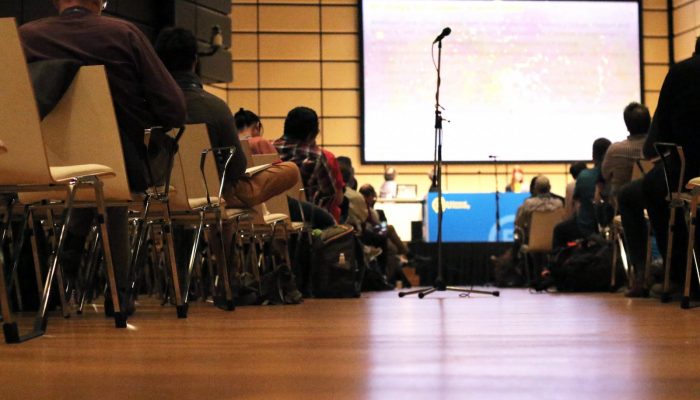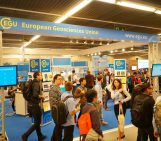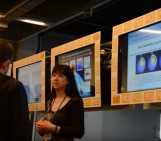
Conferences offer scientists the opportunity to share ideas, collaborate with peers, expand their networks and gain inspiration and fresh perspectives from other researchers and cutting-edge topics. These meetings bring scientists from around the world together for the purpose of advancing science, addressing societal and environmental challenges and strengthening the scientific community. However, for such conferences to truly thrive, it’s important that all researchers feel included and accepted in this space. In this blog post, we speak to EGU President Alberto Montanari about why diversity and equality are crucial at scientific meetings and what steps the EGU community is taking to promote inclusion.
Why is diversity and inclusion so important at science conferences and workshops?
Science and scientific meetings truly benefit from the synthesis of ideas and efforts, and this synthesis is only possible when we can listen to and discuss different views and approaches. Scientists need to discuss and disseminate perspectives in a balanced context in terms of gender, affiliation, country of origin and so forth. We need to include scientists from all over the world through an inclusive, open and transparent approach, and scientific meetings need to reflect this as well. Personally, I cannot think of anything more inspiring and exciting than a diverse and balanced scientific community.
What do we risk if we don’t take action to increase diversity and equality at scientific conferences and meetings?
We risk losing opportunities to make progress in science and society, and therefore we risk missing chances to pursue scientific knowledge for the benefit of humanity. It is a serious risk; we should never forget that we conduct science for the interest and benefit of all people with no exceptions. Also, let me point out that we have a lot to GAIN from increasing diversity and equality at scientific conferences.
In what ways has the EGU been working to ensure fair treatment for all members of its community?
Since its foundation EGU has been run as a bottom-up organisation, which essentially means that the Union Council listens to the community in a democratic and transparent manner. EGU wants to give everyone a voice, provided it is based on rigorous and ethically correct science.
In terms of actions, since 2009 EGU has been collecting data to help make sure that equal opportunities are offered to the whole community. Data collection is essential for a successful balance plan in terms of gender and other forms of equity.
At the General Assembly, we have regularly convened a session on “Promoting and supporting equality of opportunities in geosciences” that is co-sponsored by several partner organisations. Since 2017 we have also organised annual short courses on unconscious bias, which I think is extremely interesting and helpful.
To help accommodate our diverse community of geoscientists at the General Assembly, the EGU provides substantial financial travel support to early career researchers and scientists from low- and middle-income countries and organises a mentoring programme for novice conference attendees, students, and early career scientists. We also offer quiet rooms, multi-faith prayer rooms and childcare facilities in the convention centre, and the facility is fully accessible by wheelchair. You can learn more about the accessibility initiatives EGU has implemented through this blog post.

Alberto Montanari and members of the EGU Equality, Diversity and Inclusion Working Group kicking off the Diversity & Equality Reception at the EGU General Assembly 2019.
Finally, I would like to point out that in 2018 the EGU council approved the creation of an Equality, Diversity and Inclusion Working Group. This amazing group of people is enthusiastically committed to developing innovative ideas to make the EGU fully inclusive and balanced. One valuable suggestion they gave is to adopt a positive attitude towards balance: seeing diversity and equality as a joy, not a constraint. In fact, we are following the example of the AGU and organising a Diversity and Equality Reception at our General Assembly. I would also suggest that a positive approach is taken when we confront different opinions and discuss topical issues in science.
I would like to thank the Equality, Diversity and Inclusion Working Group. for their valuable and constructive work within the EGU.
What actions can members of the EGU community take to promote diversity and equality at scientific meetings?
Any individual member of our community should pursue diversity and inclusivity. Gender balance and equality of opportunities to all, independent of their gender or country of origin, should be one of our primary concerns, as there is still a lot of work to do. Let me point out in bold letters one practical suggestion: when forming discussion panels or any other group of speakers and presenters at EGU initiatives, we should make sure that they are balanced. I am personally committed to not serving as a member of any discussion panel where women are not adequately represented, and I invite all male EGU members to do the same.
Interview by Olivia Trani, EGU Communications Officer




